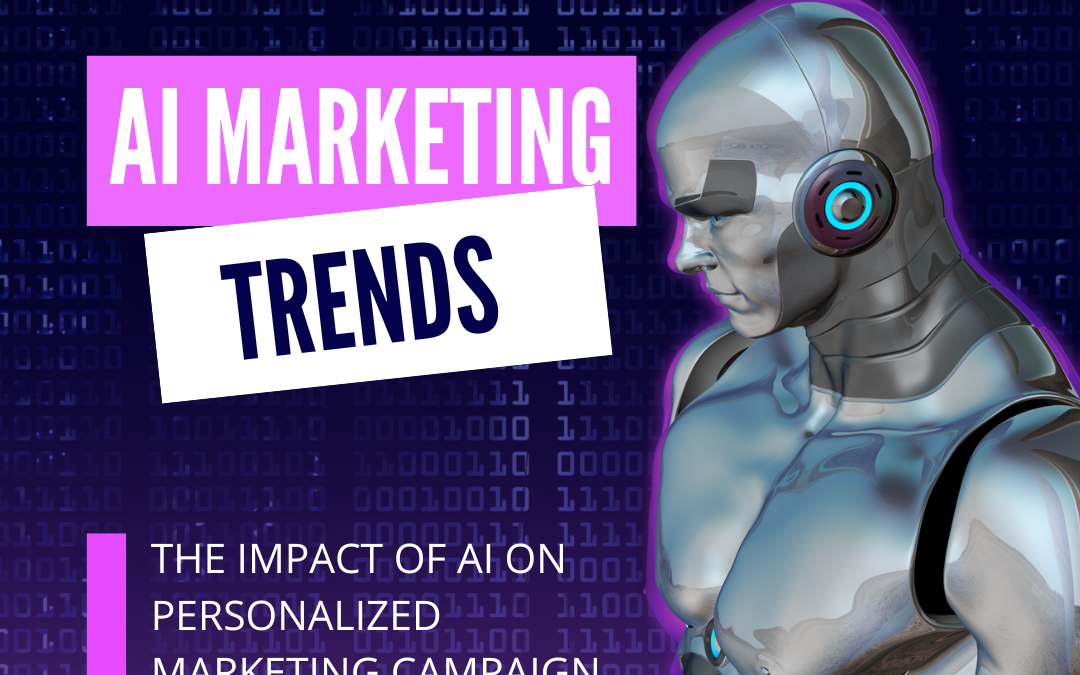Marketing personalization is a system that uses data to target leads with a brand message that speaks directly to specific customers’ interests, and buying behavior.
Your customers should feel like the brand message was made just for them because of your personalized marketing strategy. This personalized marketing can be considered as individual marketing.
Personalization is a way of making your customers feel like you are speaking directly to them and not making them feel like they’re just a number.
So far, AI has done and is still doing so much on this path of marketing.
Personalized marketing can improve the effectiveness of marketing campaigns, it can also improve the customer experience, and help build trust between businesses and consumers.
When we talk about Personalized Marketing, AI plays an awesome role here.
One of the biggest ways that AI is impacting personalized marketing campaigns is through data collection and analysis. AI can collect a huge amount of data about consumers, including their demographics, interests, and behaviors. This data can then be analyzed to create targeted marketing campaigns that are tailored to individual consumers.
How does this work in practice? Let’s say a company is selling a new line of running shoes. They want to create a personalized marketing campaign that targets people who are interested in running and fitness. With AI, they can collect data about consumers who have shown an interest in running and fitness. Then, they can use that data to create a marketing campaign that is tailored to those specific consumers.
Another way is through natural language processing (NLP). NLP is a type of AI that can understand and generate human language. It can be used to create personalized content that is tailored to each individual consumer. For example, a company could use NLP to create personalized product descriptions or emails that are written in the style and tone that each individual consumer prefers.
NLP works by analyzing the structure and meaning of language. It can understand things like grammar, syntax, and semantics. By understanding these elements of language, NLP can generate text that is tailored to the preferences of individual consumers. So, for example, a company could use NLP to create a product description that is written in a casual and friendly tone for consumers who prefer that style.
A company could use NLP to generate product descriptions that are tailored to individual consumers. Then, they could use this personalized content in an email campaign that is also tailored to individual consumers. The email could include a personalized subject line, body text, and even images.
AI is being used to collect and analyze data about consumers, and then to generate personalized content based on that data. This personalized content can then be used in marketing campaigns that are tailored to individual consumers.
One of its main benefits is that IT CAN IMPROVE THE EFFECTIVENESS OF MARKETING CAMPAIGNS. Personalized content is more likely to resonate with consumers, and it can lead to higher engagement and conversion rates. This can result in more sales and revenue for businesses.
Another benefit of this approach is that IT CAN IMPROVE THE CUSTOMER EXPERIENCE. By providing personalized content, businesses can make their customers feel like they are being listened to and understood. This can lead to greater customer satisfaction and loyalty. So not only can it be good for business, but it can also be good for customers.
So let’s take the example of a customer who is looking for a new pair of running shoes. Without personalized content, they might receive a generic product description that doesn’t address their specific needs or preferences. With personalized content, they might receive a description that speaks directly to their interests and goals. They might feel like the company understands them and is providing a more personalized service.
In addition to improving the customer experience, personalized marketing can also HELP TO BUILD TRUST BETWEEN BUSINESSES AND CONSUMERS. By providing relevant and useful content, businesses can show that they care about their customers and are not just trying to sell them something. In turn, this can lead to greater trust and loyalty.
personalized marketing can help businesses to stand out from their competitors. By providing a more personalized experience, businesses can differentiate themselves from others who are using more generic marketing tactics. This can be a real advantage in today’s competitive marketplace. It also can be cost-effective. This is because it can be more efficient to target specific groups of customers with personalized content, rather than trying to reach everyone with a one-size-fits-all approach. Also, personalized marketing can lead to higher conversion rates, which means a better return on investment.
Personalized marketing can help businesses learn more about their customers: By analyzing the data they collect, businesses can gain insights into their customers’ needs and preferences. This can be used to improve products and services and to make better decisions about future marketing campaigns.

